Queensland public service wage bill up 75 per cent under Labor
Queensland’s public service wage bill has exploded by more than 75 per cent in the near-decade since Labor was elected in 2015, despite the government struggling to recruit enough frontline police, teachers and health staff.
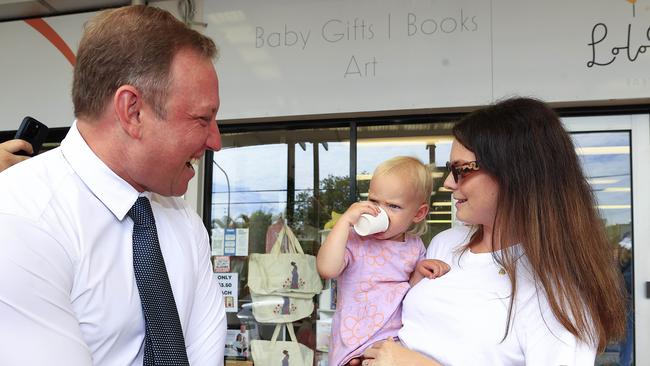
Queensland’s public service wage bill has exploded by more than 75 per cent in the near-decade since Labor was elected in 2015, despite the government struggling to recruit frontline police, teachers and health staff.
An analysis of budget data shows that for the first financial year of the Palaszczuk government in 2015-16, the cost of employee expenses was $19.96bn for 209,999 full-time equivalent (FTEs) public servants.
In this year’s budget, the wage bill hit $35.22bn for 266,999 FTEs, an increase of 57,000 full-time positions in the public service since Annastacia Palaszczuk was elected in January 2015.
Queensland’s population has grown by about 850,000 people to 5.63 million in that time, equating to about one new public servant for every 15 new residents.
The Labor government pinned its reputation on restoring frontline public service workers after Campbell Newman’s one-term LNP government slashed 14,000 FTEs from the bureaucracy, continuing to attack the opposition leader for the job cuts.
Yet frontline recruitment is still a problem.
During the 2020 election campaign, then premier Ms Palaszczuk promised to provide an extra 1450 sworn police officers in five years.
The latest workforce data shows there were 11,891 FTE police in March 2024, 88 fewer than in September 2020, but the figures do not include 558 police recruits.
Ms Palaszczuk made a similar election promise to deliver 6100 extra teachers and 1100 teacher aides – of which 2529 would be new positions and not just replacing attrition.
Workforce data shows the number of teachers and teacher aides has increased by only 1054 FTEs since then.
Despite the soaring growth in the public service wage bill, neither Labor Premier Steven Miles nor Liberal National Party Opposition Leader David Crisafulli will reintroduce the ALP’s axed fiscal principle to keep the growth in the public service below the rate of population growth.
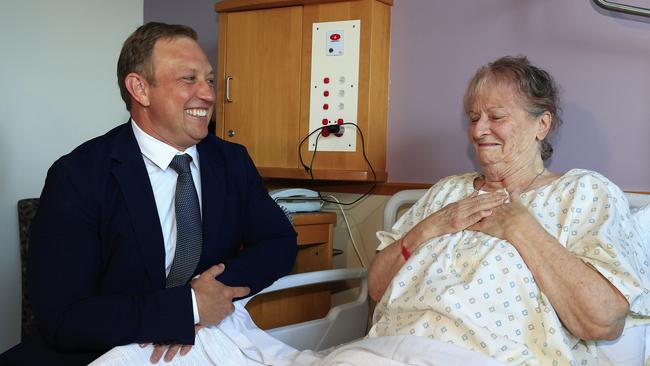
On the campaign trail in Redlands on Brisbane’s bayside on Tuesday, Mr Miles said it was unrealistic to tie public service numbers to population growth.
“Our commitment is clear: we will employ the nurses, doctors, paramedics and teachers our state needs,” Mr Miles said.
“That’s what we will always do, make sure that our services keep up with demand.
“Sometimes that demand grows greater than population growth, for example, in healthcare.
“In healthcare, you wouldn’t seriously consider limiting the number of new nurses to the population when the population is also ageing, when we are seeing demand much greater than population growth.”
He said voters had a choice on election day between “a proud record of building our public services and a party proud of their record of cutting them.”
Mr Crisafulli, who has ruled out forced redundancies in the public service if he is elected on October 26, said the state needed more public servants, particularly healthcare workers and police.
“I also want to make sure that we upskill the public service to be part of the change that is needed to deliver frontline services, and the way that you can fund that is to end the obsession on consultancies,” Mr Crisafulli said.
“Growth in consultancies, particularly to the big four in Queensland, is out of control, and it has to stop – our plan will address that, and in the process we will create a world-class public service.”
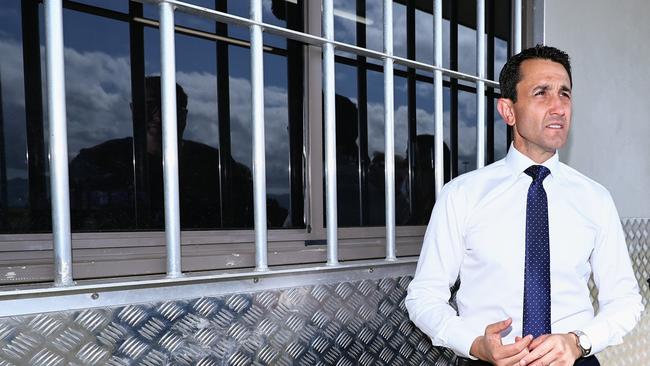
Asked whether the growth and cost of the public service was sustainable. Mr Crisafulli said: “A growing state needs a world-class public service, absolutely categorically, and we need more frontline workers as a starting point”.
Treasurer Cameron Dick ordered a reduction in the use of external consultants, contractors and labour hire firms in this year’s budget, part of a wider effort to cut $3bn in expenses.
A newly elected government will be forced to negotiate with public sector nurses, teachers and police unions on pay rises and conditions early in the next term, as those professions’ three-year enterprise bargaining agreements expire.
The government has set its public sector wage policy at 2.5 per cent, but the Queensland Nurses and Midwives Union has already indicated that it will push for a pay increase of more than 3.8 per cent annually, in order to keep pace with inflation.
Taxpayers will be slugged an extra $352m a year for every percentage point salary rise above 2.5 per cent.

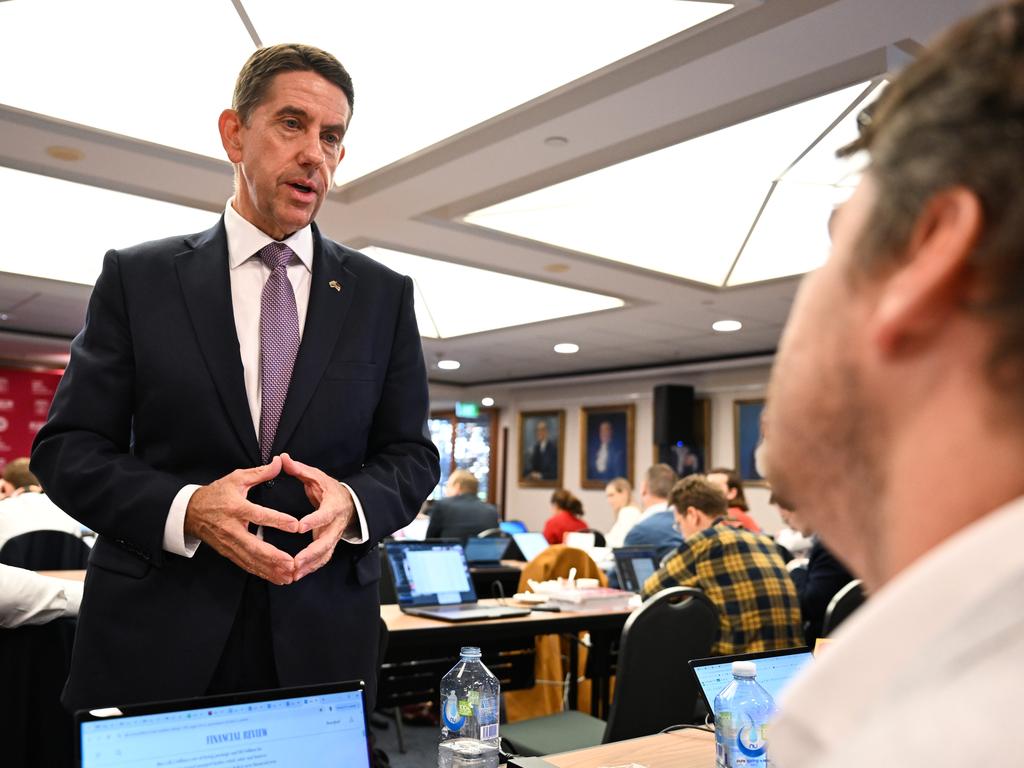
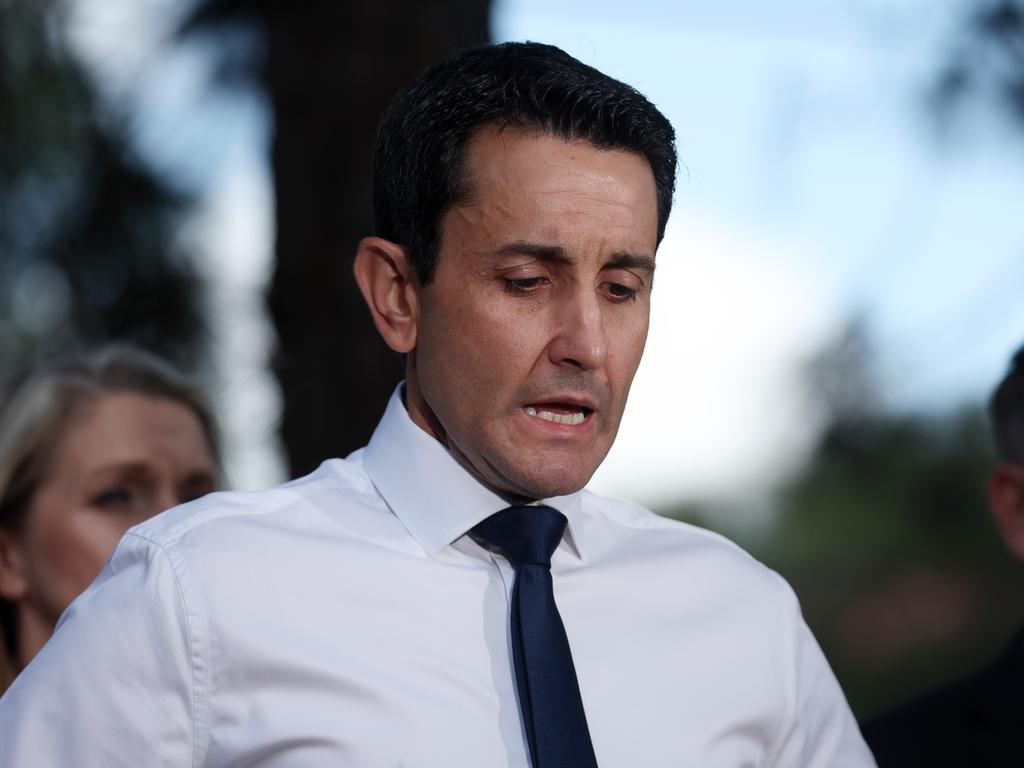



To join the conversation, please log in. Don't have an account? Register
Join the conversation, you are commenting as Logout